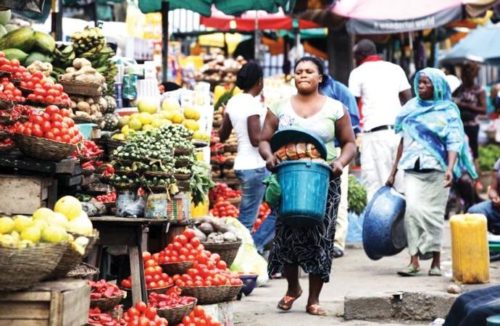
Nigeria’s inflation rate has climbed to a 30-month high, as it rose further to 14.23 percent in October, the latest figures by the National Bureau of Statistics (NBS) has shown.
Nigeria’s inflation has seen a steady rise since last year. The country’s economy has been badly hit by the COVID-19 pandemic and the EndSARS protest, organised to protest against police brutality.
The report shows that the new inflation rate is 0.52 percent points higher than the rate recorded in September 2020 (13.71 per cent).
The figure rose by 1.54 percent between September and October, indicating a 0.06 percent rate higher than the rate of rise between September and August (1.48 percent).
According to the report, the composite food index rose by 17.38 per cent in October 2020 compared to 16.66 per cent in September 2020.
This rise in the food index was caused by increases in prices of bread and cereals, potatoes, yam, and other tubers, meat, fish, fruits, vegetables, alcoholic and food beverages, and oils and Fats.
NBS said, “The all items less farm produce or core inflation, which excludes the prices of volatile agricultural produce, stood at 11.14 percent in October 2020, up by 0.56 percent when compared with 10.58 percent recorded in September 2020.
“The highest increases were recorded in prices of passenger transport by air, hospital and medical services, passenger transport by road, pharmaceutical products, motor cars, vehicle spare parts, maintenance and repair of personal transport equipment, hairdressing salons and personal grooming establishments, miscellaneous services relating to the dwelling, paramedical services, and shoes and other footwear.”
In October, all-item inflation was the highest in Sokoto, Edo, and Akwa Ibom while Oyo, Taraba, and Jigawa river recorded the slowest rise in headline Year on Year inflation.
For food inflation, Kwara, Edo, and Sokoto recorded the highest while Oyo, Jigawa, and Taraba recorded the slowest rise on a month on month inflation.